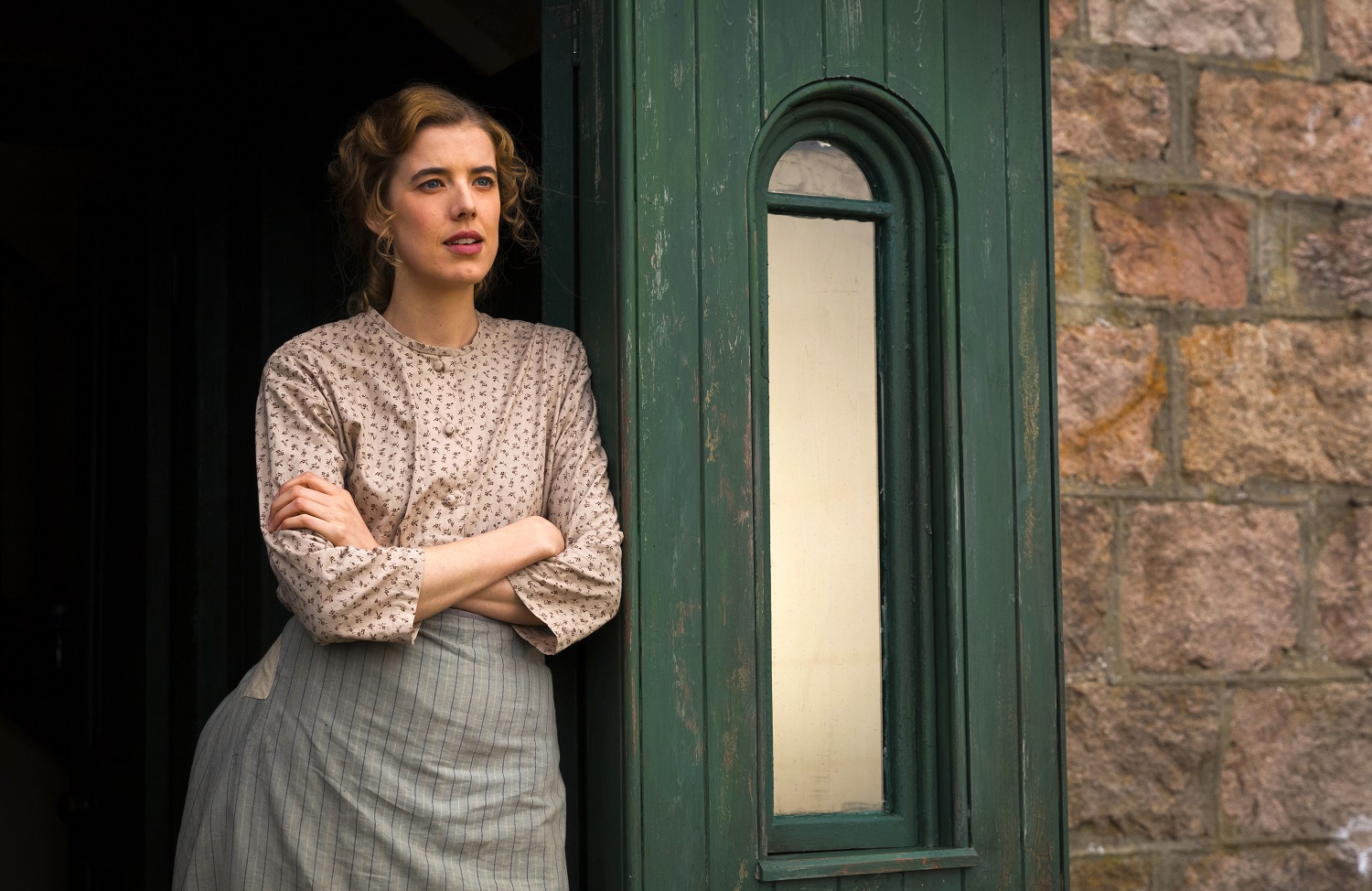
AN adaptation of the classic Scottish novel of the same name by Lewis Grassic Gibbon, the 2015 film Sunset Song follows the life of Chris Guthrie (Agyness Deyn), a young woman living on a Kincardineshire farm in the fictional village of Kinraddie, shortly before the First World War.
Covering the first part of Grassic Gibbon’s famous A Scots Quair trilogy, the film focuses on the decline and modernisation of traditional Scots farming communities, and the impending global conflict. Centred on one woman and her family farm, the film also touches on the emigration of Scots in the early 20th century and the effects of the war on rural Scotland.
But how accurate is it? Did Scots really emigrate to Argentina? And did the Church of Scotland endorse the war? Early in the film, Chris’s brother Will (Jack Greenlees) discusses emigrating to Canada to escape their abusive father (Peter Mullan). Many north-easterners moved there in the 19th and early 20th centuries.
Of the 15,524 emigrants known to have left Scotland from Aberdeen between 1830 and 1872, 14,196 went to Canada. In 1873, settlers from Stonehaven founded New Kincardineshire in the Canadian province of New Brunswick.
But Will decides not to join this flow of settlers to North America. Instead, he emigrates to a much less well-known destination for Scottish emigrants – Argentina.
From the early 19th century, Scots settled in Buenos Aires, establishing businesses and churches there. From 1838, there was even a Scottish school in the city. One of its teachers, Alexander Watson Hutton, would later help popularise football in Argentina by introducing his pupils to the sport.
In the 1870s, when sheep were brought from the Falkland Islands to Patagonia and Tierra del Fuego, many Scots found work in Argentina as shepherds. Today, some 100,000 Argentines claim Scottish ancestry, making them one of the biggest Scottish diasporas outside the English-speaking world.
When war breaks out, Chris’s farmhand, Chae (Ian Pirie), enlists with a Highlander regiment. Her other farmhand, Long Rob (Douglas Rankine), and her husband Ewan (Kevin Guthrie) both criticise the war as a senseless waste of life “for a few yards” in Belgium. Chae argues the war would bring “socialism to the common folk”.
Many socialist and communist Scots actually opposed the war, such as Harry McShane, a leading figure in Red Clydeside. Another Red Clydesider, Arthur MacManus, was arrested in 1915 for speaking out against conscription. James Maxton, a communist politician and member of the Clyde Workers’ Committee, protested the deportation of Clydeside shop stewards who had been accused of obstructing the war effort. This saw him serve a year in prison for sedition.
But a few of their comrades did back British involvement in the conflict. John Muir, another figure in the Clyde Workers’ Committee and later a Labour MP, resigned as editor of the Socialist Labour Party’s magazine in September 1914 because of his support for the war.
The Independent Labour Party was officially anti-war but one of its magazine’s regular features was a pro-war column written by a doctor in Clydebank under the pen name “Rob Roy”.
In the film, Kinraddie’s priest, Reverend Gibbon (Mark Bonnar) gives a sermon denouncing the German Kaiser as the “Antichrist” and calling those men who don’t sign up “pro-German cowards”.
Many priests did indeed attack the Germans and encourage their congregations to support the war. One Church of Scotland minister, George Walker, said that the country was fighting for God, “whose Holy Name has been insulted and defiled” by the Germans.
THE Free Church of Scotland, in an address to the king in 1915, blamed the conflict on Germany’s “lust of conquest” and said that Britain was fighting the war in defence of “truth, justice, civilisation, and Christianity itself” against the “Antichrist and the Rulers of the Darkness of this world”.
The following year, the moderator of the General Assembly of the Free Church said that conscientious objection to the war and pacifism had “no sanction in the Gospels”.
This enthusiasm for war was not limited to ministers themselves. More than 90% of the eligible sons of clergy in the Church of Scotland enlisted in the first year of the war. There were also opponents to the war, such as James Barr, a United Free Church minister in Glasgow, but they were in a minority.
When Ewan and Rob continue to refuse to enlist, a white feather wrapped round a rock is thrown through the farmhouse’s window.
Beginning in August 1914, an unofficial propaganda campaign saw women give white feathers to young men who were fit enough for military service but had yet to enlist. Others simply accosted men on the street and asked why they had not signed up.
A symbol of cowardice, the use of the white feather in this way dates back to at least AEW Mason’s 1902 novel The Four Feathers, in which the main character is given four white feathers after he leaves the army just before a campaign.
Ewan does eventually enlist in one of the Highland regiments. At the end of the film, he is shot by a firing squad. He had been found guilty of desertion after he tried to leave the army to return to Chris.
More than 3000 British and Commonwealth soldiers were sentenced to execution by a court martial on such charges, as well as cowardice, disobedience, or striking a superior officer.
Yet Ewan was very unfortunate to have his sentence actually carried out. Though thousands were charged, only 306 soldiers were executed, the bulk of them volunteers like Ewan, rather than conscripts.
The first Scottish soldier to be killed by firing squad in the First World War was Joseph Byers, a private in the Royal Scots Fusiliers. The Glaswegian teenager was shot on February 6, 1915, aged just 16. Byers and the other 305 executed soldiers were posthumously pardoned in 2006.







